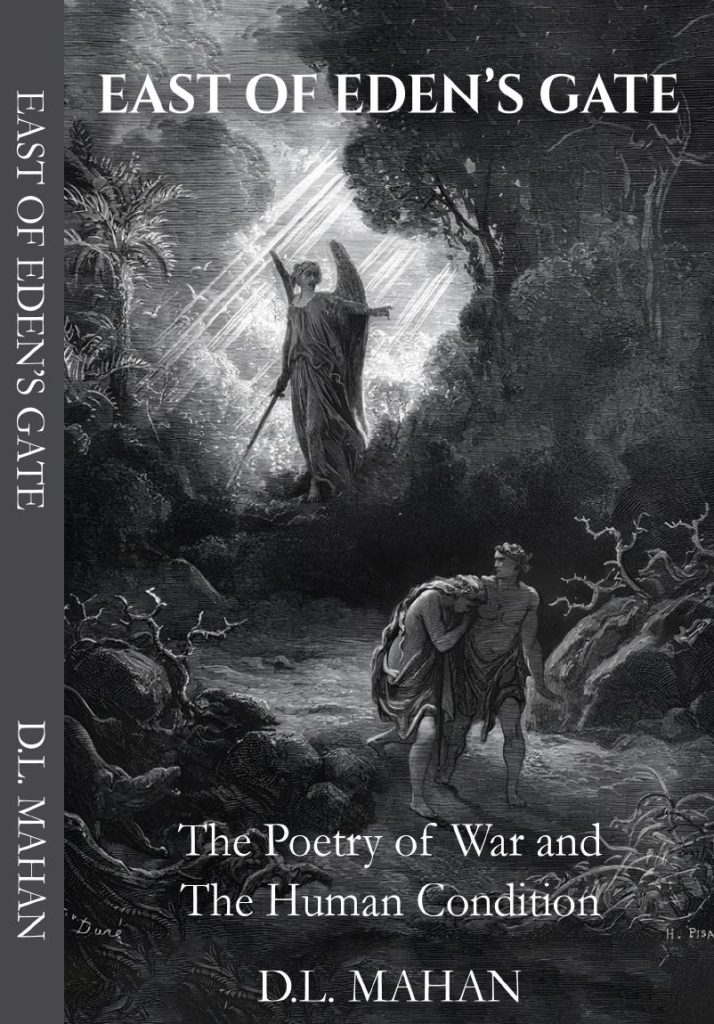About The Book
About The Book
East of Eden’s Gate
“D.L.Mahan’s newest book ‘East of Eden’s Gate: The Poetry of War and The Human Condition’ is an emotionally stirring compilation of poetry focused on the age-old effects of war, in its various manifestations, that mankind rages both externally and internally. The human condition is rife with symptoms such as hatred, revenge, prejudice, greed, and envy. East of Eden’s Gate confronts these tragic maladies of humanity with creative and provocative verse, as well as essays. The book will leave the reader contemplating when war truly is necessary versus when it should be avoided at all costs. It disarms the societal objections to the uncomfortably confrontational topic – spotlighting the insidiously self-serving or sometimes necessarily unfortunate motives for war – revealing its true victims. It is a must read for the poet, or poetry lover, who longs to be challenged in their thinking – with riveting imagery and story-telling.”

A true classic of poetry for our time! This is a book for your coffee table to share with others and reference over and over again.
David L. Mahan is the Henry David Thoreau of modern day, bringing the importance of the past into the decisions we make today and in our future. Trying not to repeat the injustices and doing what is right.
The book will pull at your heartstrings and will truly give you much to contemplate.
Enjoyable and Timeless!
In the spirit of greats like Thoreau and Yeates,
East of Eden’s Gate speaks to the full spectrum of human experience and emotion - the war within and the wars without. You will be moved in places you didn’t remember. And reminded of the truth at the core of it all…love it!!
The goal to set before us as a nation, the goal which should be set before all mankind, is the attainment of the peace of justice, of the peace which comes when each nation is not merely safe-guarded in its own rights, but scrupulously recognizes and performs its duty
toward others. Generally, peace tells for
righteousness; but if there is conflict between the
two, then our fealty is due first to the cause of
righteousness. Unrighteous wars are common, and
unrighteous peace is rare, but both should be
shunned. The right of freedom and the responsibility
for the exercise of that right cannot be divorced. One
of our great poets has well and finely said that
freedom is not a gift that tarries long in the hands of
cowards. Neither does it tarry long in the hands of
those too slothful, too dishonest, or too unintelligent
to exercise it. The eternal vigilance, which is the
price of liberty must be exercised, sometimes to
guard against outside foes; although of course far
more often to guard against our own selfish or
thoughtless shortcomings.”
